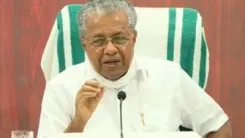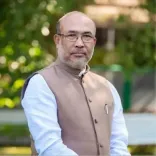How is S. Korea Enhancing Manufacturing Ties with the US?

Synopsis
Key Takeaways
- South Korea proposes a manufacturing cooperation framework with the U.S.
- Focus on tariff elimination for key products like automobiles and steel.
- Bilateral negotiations aim for a win-win outcome.
- Ongoing discussions indicate commitment from both nations.
- Importance of maintaining a stable economic partnership.
Seoul, July 6 (Yonhap) South Korea has put forth initiatives to create a collaborative manufacturing cooperation framework with the United States during bilateral discussions focused on tariffs and trade matters, according to the Ministry of Trade, Industry and Energy.
Korea's Trade Minister Yeo Han-koo presented this proposal in a meeting with U.S. Trade Representative Jamieson Greer in Washington on Saturday (U.S. time), as reported by Yonhap news agency.
During their discussions, Yeo outlined Seoul's vision for enhancing cooperation in the manufacturing sector and establishing a complementary supply chain partnership, aligning with Washington's efforts to foster a “manufacturing renaissance” in America.
Yeo emphasized the importance of including the elimination or reduction of U.S. tariffs on critical products such as automobiles and steel in the final trade agreement, asserting that South Korea has approached these negotiations in “good faith.”
The two parties also talked about extending the suspension of the 25 percent reciprocal tariffs imposed on South Korea during the Donald Trump administration, which is set to expire Tuesday, to facilitate more meaningful trade negotiations.
South Korea is pursuing either a full exemption or a reduction of U.S. reciprocal tariffs and sectoral duties on imported cars, steel, and other products by formulating a comprehensive package deal that encompasses tariffs, non-tariff measures, industrial cooperation, and various trade topics.
“Since the inception of the new administration in South Korea, both Seoul and Washington have been fully dedicated to negotiations aimed at uncovering mutually beneficial and win-win solutions for trade issues,” Yeo remarked.
“Despite the prevailing uncertainties, we will persist in our negotiations with the U.S. until the end, prioritizing the protection of our national interests to secure a favorable resolution regarding U.S. tariff measures, while simultaneously striving to maintain the robust momentum of bilateral cooperation established over the years by both nations.”









